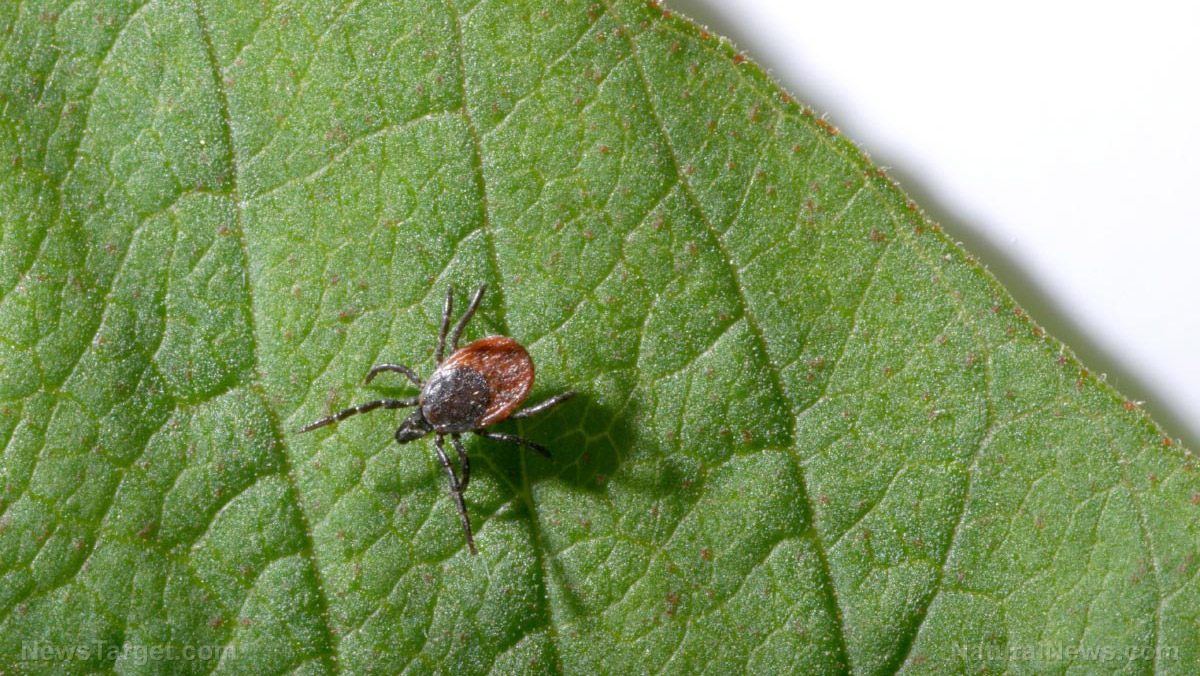World’s next major health threat could be of the domestic variety: TICKS
02/12/2018 / By David Williams

When you hear the words major health threat, what’s the first thing that comes to your mind? If you said Ebola, Zika, or some other foreign disease, you may want to think a little more close to home. According to a recent report on The Guardian, the next global health threat could be crawling right beneath you: ticks.
Ticks have been around for a very long time, and are known to be widely distributed all around the world. They are especially fond of places in warm, humid climates, so they can be found in many tropical countries. If you find a tick, chances are, you could be susceptible to a wide range of different tick-borne diseases.
As the Guardian report states, one of the best ways to describe ticks are as “the used syringes of the natural world,” based mainly on the way they feed. They are classified as ectoparasites, meaning they live by feeding on the blood of different animals, including birds, reptiles, amphibians, and even mammals. They are capable of jumping from one host to another, which is what makes them so dangerous and a risk for carrying diseases.
Tick-borne diseases
Ticks are most known for carrying the following diseases:
Lyme disease — Also referred to as borreliosis, lyme is an infectious disease that is caused by bacteria of the genus Borrelia. It’s the current most common tick-borne infection in the United States, and wasn’t formally described until fairly recently. It can cause a number of different symptoms in patients, including rashes, joint swelling, and various neurological disorders.

Babesiosis — This malaria-like parasitic disease is also known as Texas fever, and is also transmitted to humans through ticks. It is considered to be under-reported because only specialized labs are said to be capable of adequately diagnosing it in patients. As such, it can be hard to not only detect but also treat. Its symptoms include fever, nausea, fatigue, and anemia — all of which are known symptoms of other diseases as well.
Crimean-Condo hemorrhagic fever – Known as perhaps the worst out of all tick-borne diseases, it has a particularly high mortality rate of up to 40 percent in infected humans and has no real treatment available to this day. It is said that this level of mortality rate is similar to that in untreated cases of Ebola — that’s how bad it is. Although not as common as the other ones mentioned here, it is said that this disease has the potential to expand into newer regions like Europe due to a couple of different factors. Those who are in regions with a high number of sheep and cattle are at most risk.
Tick control methods
Fortunately, there is a silver lining in all of this: avoiding most tick-borne diseases is possible if you can somehow manage to take care of the source first. Getting rid of ticks is doable through a number of methods.
Indoors, you can use boric acid products in order to kill ticks due to their low toxicity to people and pets. These products are usually found in powder form and can be applied through sprinkling onto your floors or carpets and brushing with a broom before vacuuming.
If a tick is already on a pet or some other animal that lives near you, you may want to try using certain products, such as your preferred brand of pet shampoo or Dr. Bronner’s soap. However, be aware that frequent bathing can also be harmful for your pets, and isn’t really adequate for controlling ticks in the long run.
Whatever method you end up using, it’s important to know that you’re only trying to prevent ticks from getting the chance to spread the diseases that they may be carrying. Once actual symptoms of the diseases start appearing, then that requires different forms of treatment.
Learn more about other types of infectious diseases in Outbreak.news.
Sources include:
Submit a correction >>
Tagged Under:
health crisis, infectious disease, Lyme disease, lyme disease symptoms, outdoors, pests, Public Health, ticks
This article may contain statements that reflect the opinion of the author





















